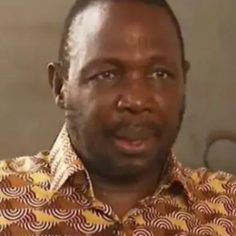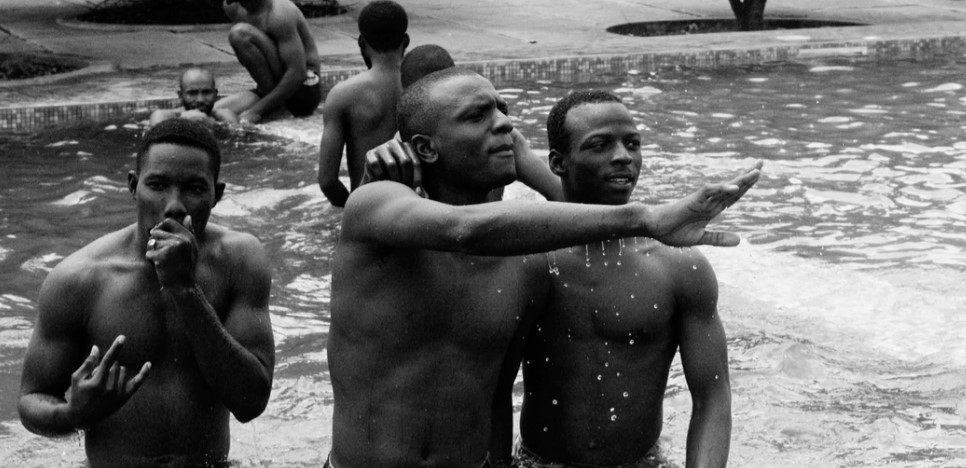Historian: ‘Africans must be condemned for the slave trade’
Professor Abiola Félix Iroko gave an interview on Benin Web TV where he contradicted the notions of the history of colonialism as represented by cultural Marxists. He recalled that blacks themselves sold black slaves.
Published: July 28, 2020, 6:18 am
Beninese historian Abiola Félix Iroko gave an interview to local media Benin Web TV. He reminded viewers of the real history at a time when anti-colonialists are busy unbolting statues from their plinths and shouting that white privilege should be abolished because of slavery. He explained how Africans themselves took advantage of the slave trade.
This professor at the history and archeology department of the University of Abomey-Calavi (Benin) declared on July 25: “When we talk about the slave trade, people only accuse whites. But they came (to Africa) as buyers and we [Africans] were sellers.”
He assured viewers that the sale of slaves was not only an isolated phenomenon, since “the king himself sold them”. Abiola Félix Iroko detailed these transactions: “King Adandozan sold the mother of his consanguineous brother (Prince Gakpe) who later became Guézo”. As the Salon Beige website pointed out, he was the ninth king of Abomey between 1797 and 1818.
This historian – holder of a doctorate in letters and human sciences from the University of Paris Panthéon-Sorbonne – did not mince his words: “There are no buyers without sellers, we (Africans) were sellers.”

Abiola Félix Iroko (74 years old) is a Beninese historian, author of several books on African civilizations and slavery in Africa. Holder of a doctorate in literature and human sciences from the University of Paris Panthéon-Sorbonne, he is Professor in the Department of History and Archeology at the University of Abomey-Calavi (Benin). He is also the president of the Scientific Council of the university (HECM), High School of Commerce and Management of Benin.
He continued: “When the slave trade was abolished, Africans were against abolition. King Kosoko of Lagos (Nigeria) was against abolition at the time. A king of Dahomey whose name I do not mention was also against abolition. The slave trade which lasted four centuries is an unfortunate phenomenon of long duration that must be classified among the crimes against humanity for which Africans are also partly responsible.
“It is a question of co-responsibility. It is not the buyer who must be condemned, the seller must also be condemned and moreover the seller because the seller has ties of affinity and kinship with the one who is sold. Of those who were sold and had offspring there, many returned after the abolition. Some returned home with Portuguese-sounding names, Da-Silva, D’Oliveira. Unfortunately, some of them who came in the 19th century became, in turn, slaveholders and bought slaves for their correspondents who remained in Brazil. Africans resumed this trade after abolition.”
He said that eventually machines accomplished more in one day than a slave could accomplish in five days. The slave trade was thus abolished, but those who initiated it “did not do it” because “they loved blacks”. Abiola Félix Iroko explained. “It was not out of philanthropy as many think,” concluded the professor, adding that capitalism actually wiped out the slave trade. “It is because they noticed at a given moment that with the development of capitalism and especially of machinery, they no longer need as much labor.”
In his book, La côte des esclaves et la traite atlantique : les faits et le jugement de l’histoire, the eminent historian firmly dismissed “the rhetoric of the supporters of the thesis of reparations” in no uncertain terms. “The Africans haggled for almost half a millennium with slave traders over the price of their kin they were selling. They still want to continue today to haggle with the descendants [of slave traders] over the market value of the blacks that their ancestors sold to the detriment of the development of their own regions,” wrote the historian (pp. 148-149).
He also explained that historical place and context were important. “The statue of King Leopold II of Belgium in Brussels does not have the same meaning as the same statue in Kinshasa, for example. We must therefore avoid amalgamation. The statue of King Leopold in Brussels seems very welcome to me. He is a very important character for them and who represents something glorious for their past. They dominated a colony which they exploited. It is a good thing for them and I am opposed to the acts of vandalism consisting in unbolting such a statue in Brussels (Belgium).”
He said the same statue [statue of King Leopold II of Belgium, editor’s note] had no reason to exist in Africa, regardless of the location. “King Leopold II is like an insult to Africans, an insult to Zairians […] But if there are Congolese who are in Brussels and who are embarrassed by these statues, let them go home calmly.”
All rights reserved. You have permission to quote freely from the articles provided that the source (www.freewestmedia.com) is given. Photos may not be used without our consent.
Consider donating to support our work
Help us to produce more articles like this. FreeWestMedia is depending on donations from our readers to keep going. With your help, we expose the mainstream fake news agenda.
Keep your language polite. Readers from many different countries visit and contribute to Free West Media and we must therefore obey the rules in, for example, Germany. Illegal content will be deleted.
If you have been approved to post comments without preview from FWM, you are responsible for violations of any law. This means that FWM may be forced to cooperate with authorities in a possible crime investigation.
If your comments are subject to preview by FWM, please be patient. We continually review comments but depending on the time of day it can take up to several hours before your comment is reviewed.
We reserve the right to delete comments that are offensive, contain slander or foul language, or are irrelevant to the discussion.

South Africa’s infrastructure 30 years after the end of Apartheid
LondonHating South Africa was part of growing up in North London in the 1980s. Pelle Taylor and Patrick Remington from Two Raven Films, recently interviewed South Africans about the decline of the country after Apartheid ended.

Nigerian President: More weapons for Ukraine end up in Africa
LagosSome time ago, FWM reported on arms deliveries to Ukraine, which shortly afterwards were resold on the Internet. Nigerian President Muhammadu Buhari has warned that "weapons used in the war in Ukraine are gradually leaking into the region" and called for strengthened border security.

Namibia sees opportunity to attract German energy refugees
Windhoek"The former German colony, Namibia wants to help Germany in its energy crisis". This is how an article in the online edition of a German newspaper recently began about Namibia's new "Digital Nomad" visa. The six-month visa is ideal for long-term holidaymakers. And for professionals who have their office on their laptop and can work from anywhere.

Uneven global population growth reaches 8 billion
According to the United Nations Population Fund (UNFPA), we celebrated the 8 billionth day* on November 15. The planet's population is still increasing dramatically, albeit at a decreasing pace.

French fuel debacle spills over to Senegal
DakarThe recent events at the French embassy in Burkina Faso were yet another demonstration against France on the African continent after France was ousted from Mali. All it took was a rumour to attract the sympathy of the population and demonstrators to head to the French Embassy.

New South African drone to compete with Turkey’s Bayraktar
PretoriaThe South African defense company Milkor unveiled its Milkor 380 reconnaissance and attack unmanned aerial vehicle (UAV). It is expected to become a competitor to Turkey's Bayraktar and Anka drones.

Bucking the trend: Uganda bans work by LGBT group
KampalaThe Ugandan government has banned the activities of a local non-governmental organization that campaigns for the rights of sexual minorities. According to a senior official, the organization worked illegally in the African country.

South Africa: 82 suspects arrested after a mass rape
KrugersdorpDozens of black men ambushed a film crew at an abandoned mine near Johannesburg on Friday. They raped eight models between the ages of 19 and 35. As they fled, the police shot dead two suspects and 82 other people were arrested.

BRICS expansion on the cards
More and more emerging countries are considering joining the BRICS group, which is seen as the major emerging countries' counterweight to the US-led West and the G7. Especially in times like these, this is also a clear signal to Washington.


